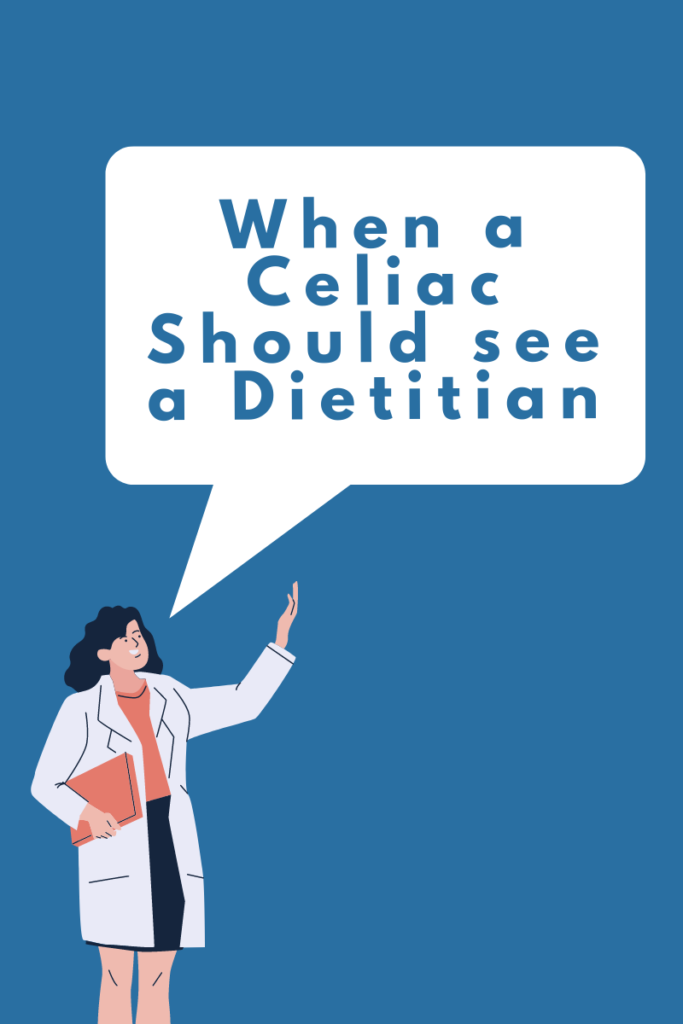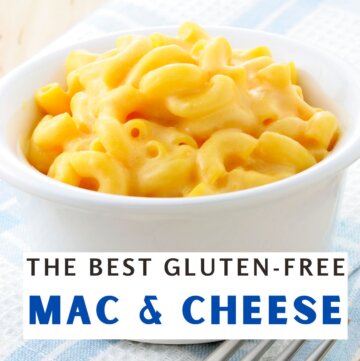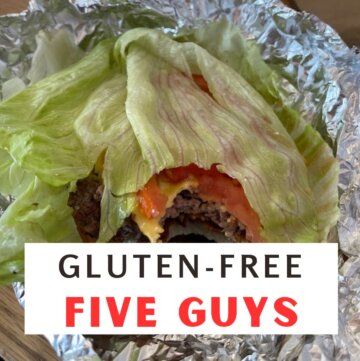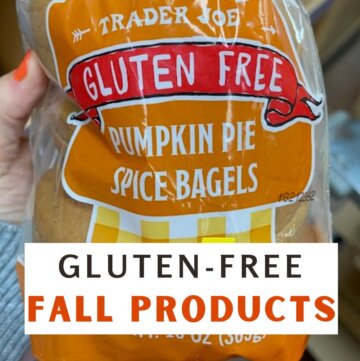Do you know when a celiac should see a dietitian? It's an important question that's often not discussed, but today we are talking all about it!
This is a guest post by my friend Tayler Silfverduk, RDN of Celiac Dietitian.

I'm thrilled to share with you a new guest post from my friend Tayler Silfverduk, AKA Celiac Dietitian. Tayler is a registered dietitian that specializes in celiac disease. Her work is crucial to making sure celiacs get the support they need following a diagnosis with celiac disease.
In today's guest post, Tayler dives into when and why someone with celiac disease should see a dietitian following an initial diagnosis. And all I can say is, I WISH I knew someone like Tayler when I was going through this process twelve years ago. It would have made my celiac journey a whole lot easier.
When A Celiac Should See A Dietitian
Introduction to Dietitians
There is a lot of mixed messaging around seeing a dietitian following a celiac diagnosis. Some people say it wasn’t helpful, others say it made everything ten times easier, so what’s going on?
Are dietitians helpful for celiac or not?
Let’s unpack when and why to see a dietitian after a celiac diagnosis.
What is a Dietitian?
A dietitian, or more specifically, a registered dietitian (RD for short) is a nutrition specialist who meets very specific criteria to be able to provide nutrition guidance.
Criteria to be a dietitian in the USA includes:
- a minimum Bachelor’s degree in an accredited dietetic program (or Master’s program as of 2024)
- 1200+ hours of supervised practice
- pass the national registration exam
- maintain continuing education.
It’s important to note that a Dietitian is always a Nutritionist but a Nutritionist is not always a Dietitian. More specifically, depending on where you live, anyone can call themselves a Nutritionist whereas to be a dietitian you must meet the above criteria.
Other important facts to note, two credentials signify a dietitian, RD, and RDN. RD stands for Registered Dietitian and RDN stands for Registered Dietitian Nutritionist. Both mean the same thing, it just a matter of which title a Dietitian prefers.
Celiac Disease & Dietitian Nutritionists
So can a Nutritionist help with celiac disease?
It depends, is that nutritionist a dietitian? Do they specialize in celiac? Both of these things matter when it comes to speaking with a nutritionist about your celiac health.
Seeing a Nutritionist who does not qualify as a Dietitian could mean trouble as they might not be adequately prepared to provide you with nutrition guidance.
The same goes for seeing a Dietitian who does not specialize in Celiac. If you need long-term support, you must meet with a Dietitian who knows the nuances of celiac, and generally, that means speaking with a celiac nutrition specialist (like myself *winks*).
When & Why You Should Meet with a Celiac Specialized Dietitian

Now that we’ve covered what a registered dietitian nutritionist is, let’s talk about when and why you might consider seeing one.
- You’re diagnosed with nutrient deficiencies.
Dietitians are specifically trained to help you balance your diet adequately to make sure you’re meeting your nutrition needs. Some common nutrient deficiencies associated with celiac and a gluten-free diet include iron, calcium, vitamin D, B vitamins, magnesium, and fiber. If you have been diagnosed with nutrient deficiencies with celiac a dietitian can help you bounce back from them. - You need help following a balanced gluten-free diet.
Switching to a gluten-free lifestyle can uproot previous balanced eating habits. Often a gluten-free diet can be limited in B vitamins, iron, calcium, and more. If you need help rebalancing your diet to meet your health goals and needs, a dietitian is specially trained to guide you. - Your symptoms are not improving despite staying gluten-free or your celiac labs are not improving.
There is a lot that goes on behind this, sometimes you might need to be more strict, sometimes gluten is still sneaking in, sometimes other food sensitivities are at play or it’s something else altogether. A registered dietitian specialized in celiac can help you get to the bottom of what might be causing those lingering symptoms. Building on that, if you suspect you might have a food intolerance or sensitivity, a registered dietitian is uniquely trained to help you uncover it. - You’re having trouble with weight gain or loss following diagnosis.
If you’re struggling with weight change a registered dietitian can help you understand what’s going on and help you get to your body’s appropriate weight. - You’ve heard “XYZ” and you’re not sure if it’s true.
The only treatment for celiac is a gluten-free life and specialized registered dietitians are equipped to dispel myths and clarify the facts surrounding gluten-free living. The best person to go to for clarification is the expert. A bonus to this is being equipped with facts can help you to better advocate for yourself. - You feel like you can only buy products with a gluten-free claim or certification or you frequently restrict specific food groups and events without medical necessity.
This might indicate a strained relationship with food and warrants discussion with a dietitian to help you build more comfort around a gluten-free life. (Learn more about the difference between a gluten-free certification and claim here). - You aren’t sure how seriously to take cross-contact and everyone is saying something different (hint it’s because there is no one size fits all approach).
If you are unsure about cross-contact or you aren’t sure about your own cross-contact practices, a registered dietitian can help you fine-tune your gluten-free life to make sure you’re staying safe.
These are just some of the reasons to see a dietitian after a celiac diagnosis. A lot of people lack support after going gluten-free and a dietitian can help boost that support. Let’s take a headcount, how many of you received adequate follow-up care following your diagnosis?
Work With Tayler

Thank you, Tayler, for sharing your knowledge of celiac disease and helping others get the support they need. You rock!
If you want to learn clear cut strategies for celiac safety from Tayler if you're newly diagnosed with celiac disease, check out her Celiac Crash Course or follow her on Instagram for additional resources!





Comments
No Comments